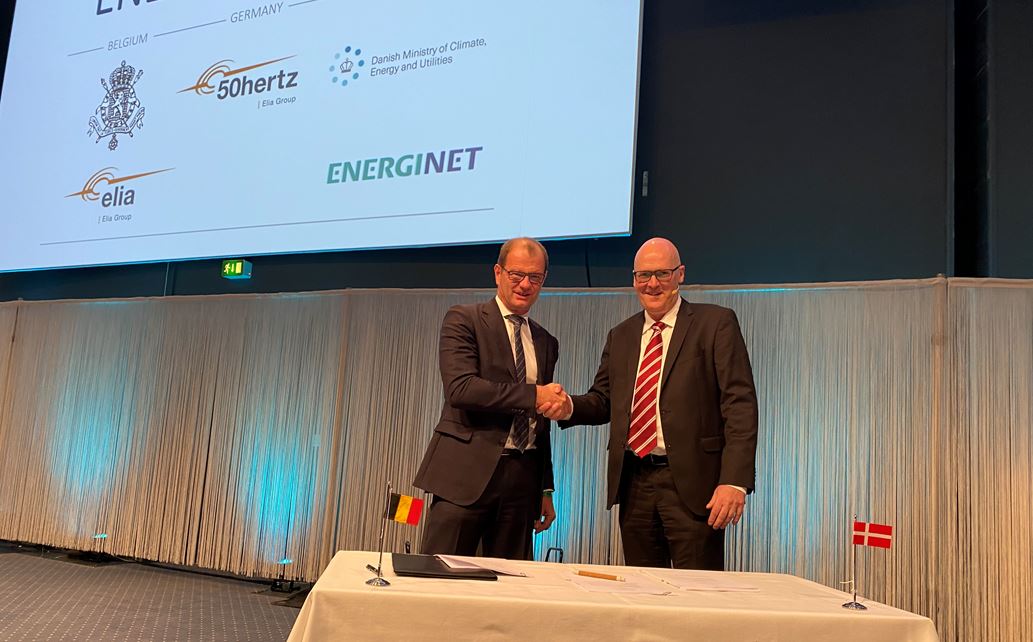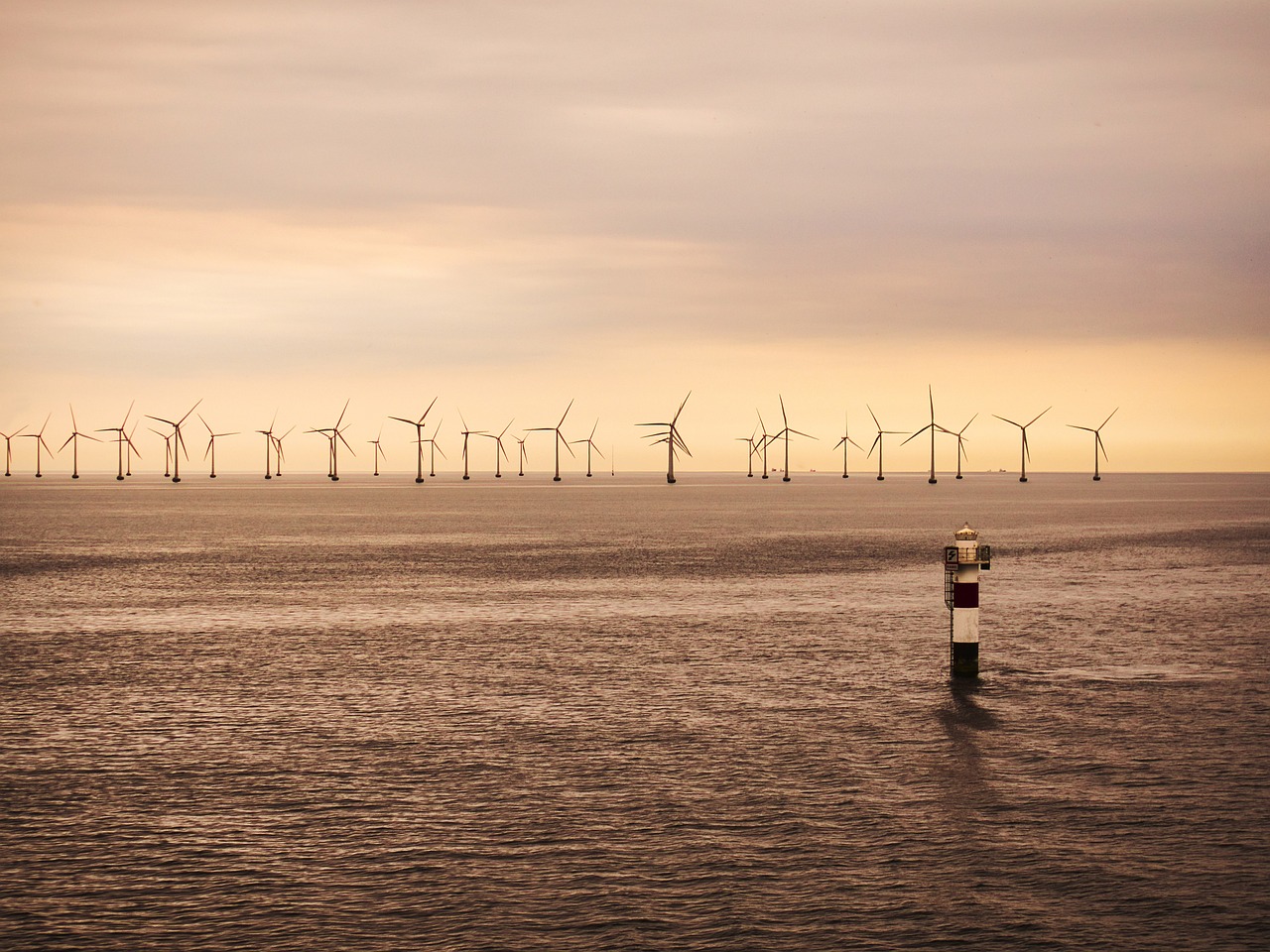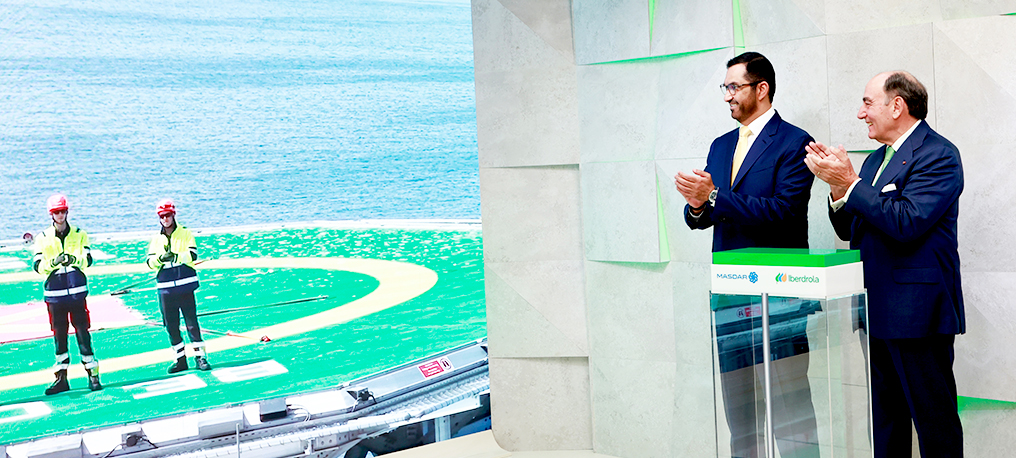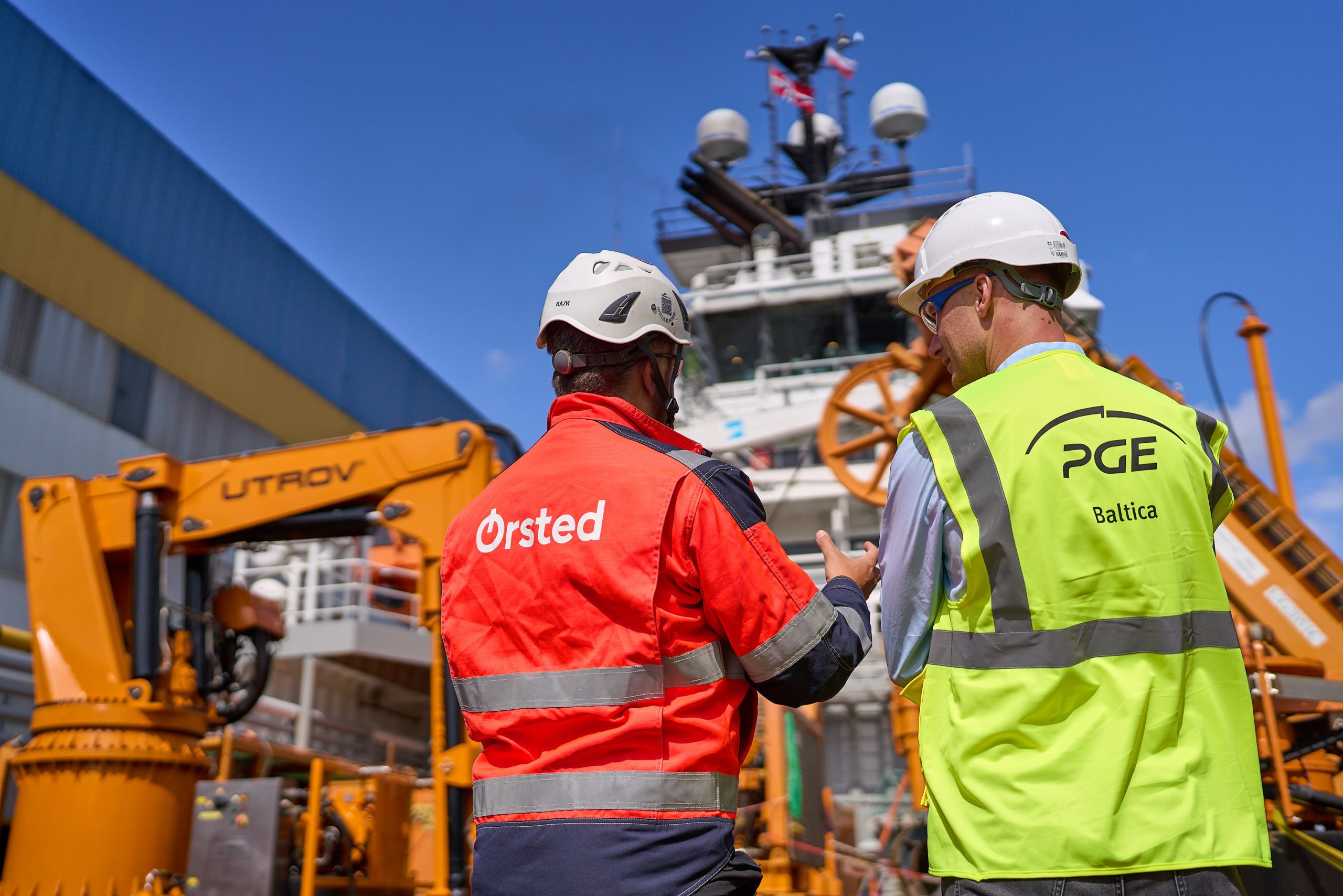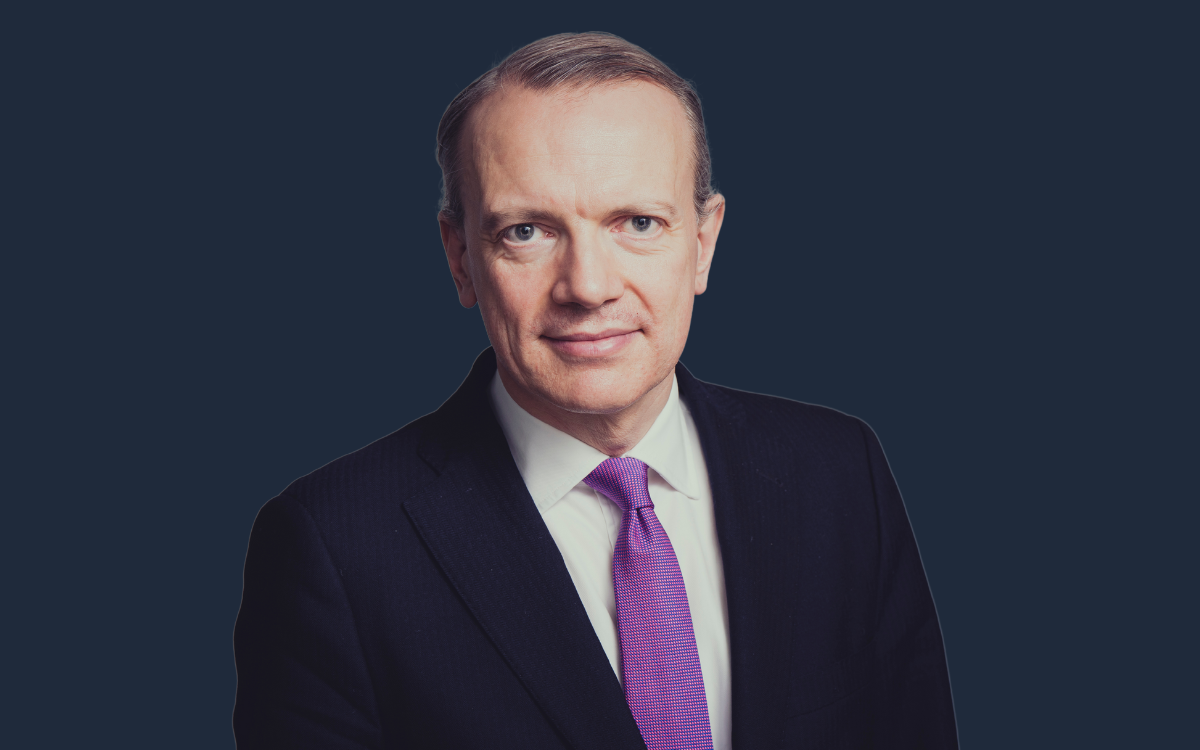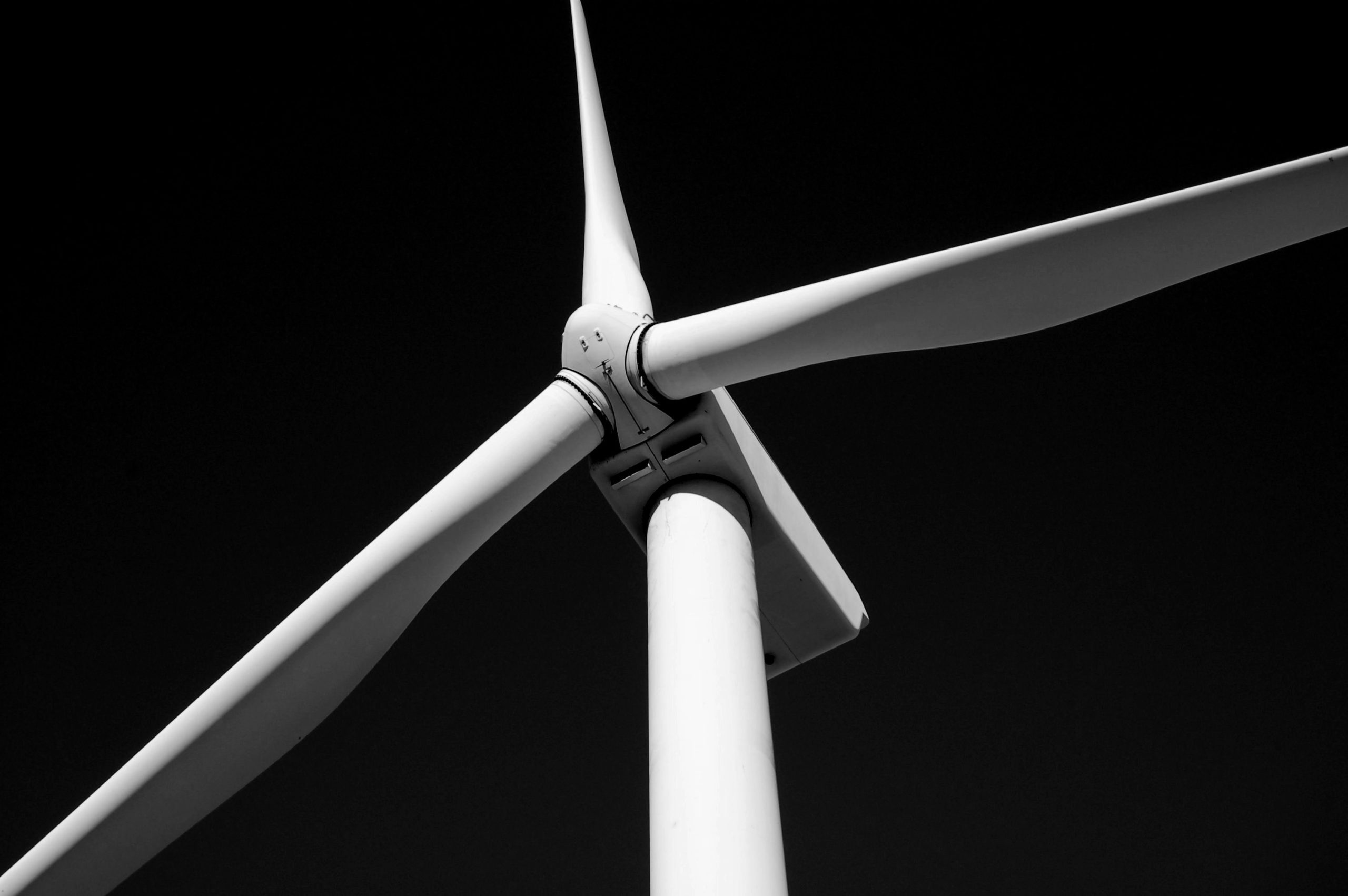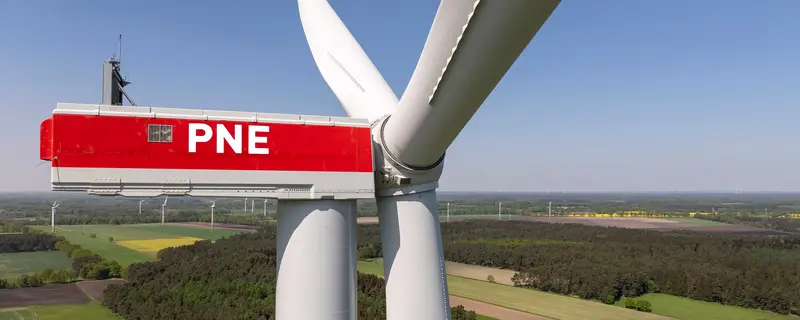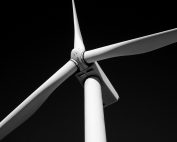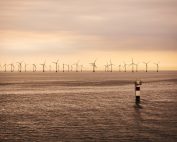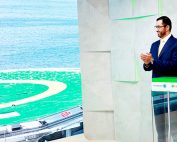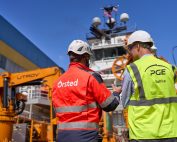Neighbouring transmission system operators 50Hertz (Germany) and Energinet (Denmark) seek to work together on the realisation of the ‘Bornholm Energy Island’ offshore hub by 2030. In the scope of the conference WindEurope Electric City 2021 in Copenhagen, CEOs Thomas Egebo of Energinet and Stefan Kapferer of 50Hertz today signed a corresponding cooperation agreement on the construction of a hybrid interconnector between their respective countries. Danish Minister of Energy Dan Jørgensen and German State Secretary at the Federal Ministry for Economic Affairs and Energy, Andreas Feicht, were also present to witness the signing. The energy hub on Bornholm Island will allow for the possibility of further expansion stages and could lay the foundation for an offshore power grid in the Baltic Sea.
The agreement contains several elements. The key component is the first phase of a direct current connection between both countries over a total length of 400 kilometres. From Bornholm, it will run west towards the Danish island of Zealand and south-west towards the coast of Mecklenburg-Western Pomerania in Germany. This connection will transport electricity generated in Danish waters by the wind farms off the coast of Bornholm, boasting a capacity of 2,000 MW. The transmission capacity will also be available for cross-border electricity trading.
The converters, substations and a terminal for the distribution of the electricity is not be installed on an artificial island, but on the island of Bornholm itself. At a later stage, other system operators from the Baltic region could potentially join in. Moreover, other installations can be integrated into this terminal to generate and convert electricity, for example into green hydrogen. Preliminary research indicates that the investment cost would amount to around two billion euros.
Stefan Kapferer, CEO of 50Hertz: ‘The Bornholm Energy Island project builds on the good cooperation between 50Hertz and Energinet that has existed between our companies for many years. The Kriegers Flak Combined Grid Solution that was commissioned last year and is the world’s first hybrid interconnector, now incorporates Danish and German wind farms. With the Bornholm Energy Island, we now seek to go one step further and create the first real power grid hub for the Baltic Sea. Together, we can master this technical and economic challenge.’
Stefan Egebo, CEO of Energinet: “I see the cooperation agreement as a big step forward towards Danish energy islands becoming a reality and with huge gains for a greener Europe. Today’s agreements show not only that the whole idea of energy islands and connections to several countries is a good idea, but also that the countries are very keen to implement the huge offshore wind projects. It’s a big day that brings the energy islands with neighboring countries one important step closer.”
Andreas Feicht, State Secretary at the Federal Ministry for Economic Affairs and Energy: ‘The signing of this cooperation agreement between 50Hertz and Energinet for the construction of the Bornholm Energy Island offshore hub marks an important milestone to jointly exploit the Baltic Sea’s wind potential. Against the backdrop of the European Green Deal, the achievement of our ambitious goals will largely depend on this type of cross-border projects. The fact that this project is now entering the next phase emphasises the successful cooperation between Germany and Denmark.’
The Bornholm Energy Island project was set into motion in the summer of 2020 by a decision of Danish Parliament. A German-Danish agreement on multilateral cooperation in offshore projects in the North and Baltic Seas followed the decision. Finally, 50Hertz and Energinet signed a Letter of Intent in January to explore the feasibility of the project together. The analyses thereafter showed that the project offers Europe an economic advantage, contributes to the political goal of reducing CO2 emissions and is technically feasible.
Plans also made for Danish-Belgian interconnector between energy islands in North Sea
At the WindEurope conference, Energinet also signed an agreement with the other transmission system operator of Elia Group, Belgian TSO Elia Transmission Belgium (ETB). Energinet and ETB seek to connect two energy islands in the North Sea by means of a 600 km long submarine cable, linking wind farms off the coasts of Denmark and Belgium.
Chris Peeters, CEO of Elia Group: ‘The realisation of the Belgian-Danish cable is an important next step in making our electricity system more sustainable. Thanks to the hybrid technology, we will have direct access to large wind farms in the far northern parts of the North Sea with different climatic conditions. This will provide greater security of supply and help our energy-intensive industry to further decarbonise. In addition, we will continue to pioneer innovative technologies, giving our companies an edge on the international stage.’
Source: 50Hertz
